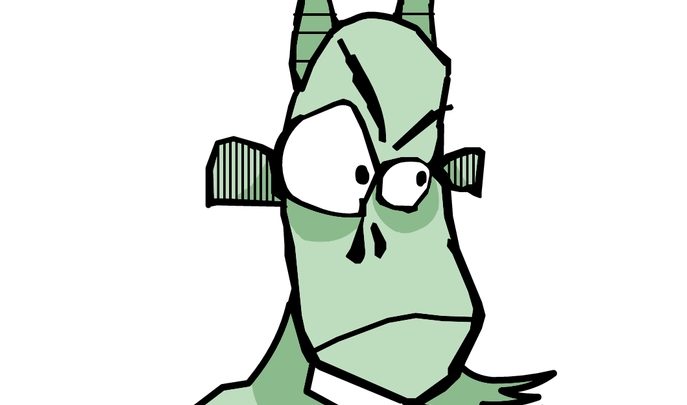Tales Of The Unexpected – What To Do When Role Play Goes Wrong

Using role play to take risks in the classroom can lead to moments of brilliance. Just be ready for when things take a turn for the worse, says Debra Kidd…

- by Debra Kidd

I’m teaching Year 1. In front of their teachers, which is a little bit scary if I’m honest. But they’re smiling and nodding and it’s going quite well.
I’m retelling the story of the Three Billy Goats, but with a slight twist. The troll is missing. The goats are now rampaging around the town, eating everything in their sight. The children are inducted into the fiction as villagers keen to tell me what the goats have been up to. “They ate my birthday cake!” “They bounced on my trampoline. And then ate it.” “They ate all the washing off the washing line. Even the knickers.” It’s clear the goats are a nuisance, but before we can decide what to do about them, the children get a letter from a lady in our village. It tells them that there is a troll in her shed and he won’t come out. He is crying and complaining that there are three goats bullying him. Will they help him?
She outlines that he has little troll eggs in his home, and that they might die if he doesn’t keep them warm and safe from noise. That’s all he was trying to do when he stopped the billy goats – protect his troll eggs.
“You, Mr. Goat, are a bully!”
The children are keen to help. They draw up a list of things he likes. And things he hates. They check on the eggs and decide what they look like when they’re healthy and what the signs of danger are. They see small changes in the eggs and are keen to impress upon the troll the urgency of the situation. It’s going swimmingly well, but then I have one of those ideas. My colleague, Hywel Roberts, is working in another room running some middle leaders training. In the break I ask him if he’d mind popping in. As the big billy goat. So he does. He doesn’t pop. He swaggers. He’s rubbing his belly, bragging about how much he’s eaten. The children are in the middle of very sensitive negotiations with the troll. They have just promised him solemnly to protect him from the goats, and who should have walked into the room? As one, they move to put themselves as a barrier between myself (the troll) and Hywel The Goat. “You, Mr. Goat, are a bully!” “You clear off – you’re not wanted around here.” The others are jeering him. He starts to look upset. One child pushes him. He turns to leave and looks like he might cry. He leaves the room. I’m flummoxed. I didn’t quite expect that reaction. The children are pumped up. I’m still supposed to be the troll, so I try to use the role to pull them around.
“Oh, I feel a bit sorry for him,” I try. “He deserved it!” shouts a child. “He did! He did!” shouts some others. The head walks in. “I’ve just seen a very upset goat in the corridor,” he says. “What on earth happened in here?” The troll goes back into the shed.
Apologies and solutions
The children explain, still outraged, all the things that the billy goat has done. They don’t seem remotely contrite. But then the head says something beautiful. “In our community…here, in our school community, if someone does something wrong, do we shout at them or push them? Is that the right thing to do?”
Instantly the children reverse. The situation has been clarified and suddenly they see it through different eyes. It is they who are the bullies. They who have used threats and violence on another. And they are sorry. The thing is we can’t just make it up to the goat – I point out, back in teacher mode. Saying sorry is one thing, but we still have our problems. We need apologies and solutions. So they get to work. After some discussion, they decide that they need to build the goats a home – a secure enclosure where they can be managed. And where they can be kept separated from the troll. They invite them in for a meeting where they put their proposals forward and they begin to design. They draw. They write. They negotiate and they reflect.
“I’m sorry I was mean today,” said one. “I was trying to help a friend. But it was better when we tried to stay out of it and just make the problem better.”
Amen.
Debra Kidd has worked in education for over 20 years, teaching children from the ages of four right through to post-graduate students. She currently delivers CPD both nationally and internationally – for more information, visit www.debra-kidd.com or follow @debrakidd











